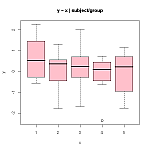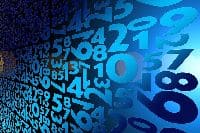
Crash Course: Statistics
Let us pretend for a second you have only a few minutes and you need to learn Statistics. So I have to think, how would I teach it to you.
Or at least, how would I teach you the fundamentals of statistics if I had only a few minutes of your attention.
Not an easy task, for sure, but we can give it a try, at least as a mind experiment, to at least get an idea of how hard (or easy) it could be. The only condition is that you put all your attention, and you try to soften your brain to accept information you are about to received.
In the beginning, there was Math, and it was good....
First, Stats is pretty much a type of math that analyzes data. The data that we analyze is called "sample data" or "samples" for short. This term is used to refer to a PART of a population that you use to get a taste of how the whole population is.
A little bit like when you go to Costco and get some samples, which help you test a brand to decide if you like it or not.
So samples are a small part of a whole, which is called a "population". So hear this well: statistics is about using information provided by a "sample" to try to make a conclusion about the whole "population".
Or even simpler, it is about using sample data to make claims about a whole population. This crash course on Stats could very well end here....

Now, why there are thousands and thousands of very long stats books then?
I knew you would ask that. Yeah, I painted a rosy picture of what Stats could look like. Just take some innocent samples (a small part of the population) to make and test claims about the whole population.
That looks like a great deal to me. But there is certainly a lot more to say.
Those "claims" we make about the population, are not just any claims. There are properly structured claims that have to do with some specific properties of the population.
This is not about perceptions you may have about the population, just because you felt like. You can Stats, in the sense of making claims about populations, provided that you follow certain specific rules for the claims.
"Ok" you say. "But that still does not sound like it could fill up thousands of pages, what else there is???" Good intuition, there is more. When I said you make claims about a population, you cannot use just any population, you need to know some specific populations.
Indeed, there is a very strict list of requirements for populations to be able to use in this simple process we described.
"Alright, fair enough". "No, still there must be more, right?" You are correct. Remember those samples you use to make claims about the population? They cannot be just any sample, they need to be collected in certain ways to be samples that are appropriate to conduct the simple process we described at the beginning.

So, Stats is full of tricks before you can conduct the simple process we defined at the beginning?
Sort of yes. But you can see it this way: Now, you can see that Statistics is simply a discipline that uses sample data (a small portion of the population) more claims and test those claims about the whole population. Super simple.
BUT, the requirements and procedures for making a claim, using a population, collecting a sample and testing a claim mathematically are very precise, in order to secure that our decisions and claims are sound.
Related Content


Combining Efforts with a Statistics Expert - StatisticsHelp

